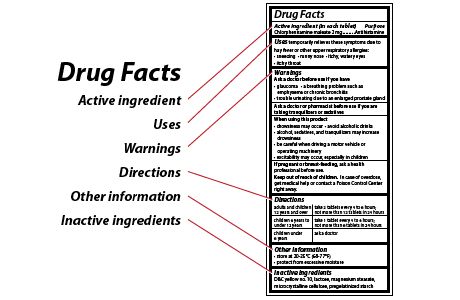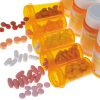- Empty cart.
- Continue Shopping
The Importance of Understanding Over-the-Counter Labels

Over-the-counter (OTC) medications are a convenient and accessible way to address various health issues, from headaches to allergies. However, the ease with which these medications can be obtained should not diminish the importance of using them responsibly. One of the key aspects of responsible usage is understanding the labels on OTC products.
Why Reading Labels Matters
Safety First
OTC medications, while generally considered safe, can pose risks if misused. Overdosing, interactions with other medications, and side effects are real concerns that can be mitigated by carefully reading the label.
Effective Treatment
To get the desired therapeutic effect, it’s crucial to follow the recommended dosage and guidelines. Failure to do so can result in ineffective treatment and may even worsen the condition.
Special Considerations
Certain groups, such as pregnant women, children, and individuals with specific medical conditions, may have unique considerations when it comes to OTC medications. Labels often provide guidance for these groups.
Key Components of OTC Labels
Active Ingredients
This section lists the active substances in the medication that produce the therapeutic effect. Knowing the active ingredients helps avoid accidental overdosing and interactions with other medications.
Uses
This part outlines the conditions or symptoms the medication is designed to treat. Make sure the medication you’re considering is appropriate for your specific issue.
Warnings
This section is crucial as it provides information on when not to use the medication, potential interactions, and side effects. It may also include special warnings for certain groups of people.
Directions
Here, you’ll find the recommended dosage, how often to take the medication, and for how long. Following these directions is essential for both safety and effectiveness.
Other Information
This section may include additional details like storage recommendations and the medication’s expiration date.
Tips for Reading Labels
Take Your Time
Don’t rush through reading the label, especially if it’s a medication you’re using for the first time. Make sure you understand all the sections.
Consult a Healthcare Provider
If you have any doubts or questions about the information on the label, consult a healthcare provider for clarification.
Keep a Record
Maintaining a list of all the medications you’re currently taking can help you quickly identify potential interactions and discuss them with your healthcare provider.
In conclusion, understanding over-the-counter labels is not just a good practice—it’s a necessity for safe and effective medication use. By paying close attention to the active ingredients, uses, warnings, and directions, you can make informed decisions about your health. When in doubt, always consult a healthcare provider to ensure that you’re using the medication appropriately for your specific needs.








